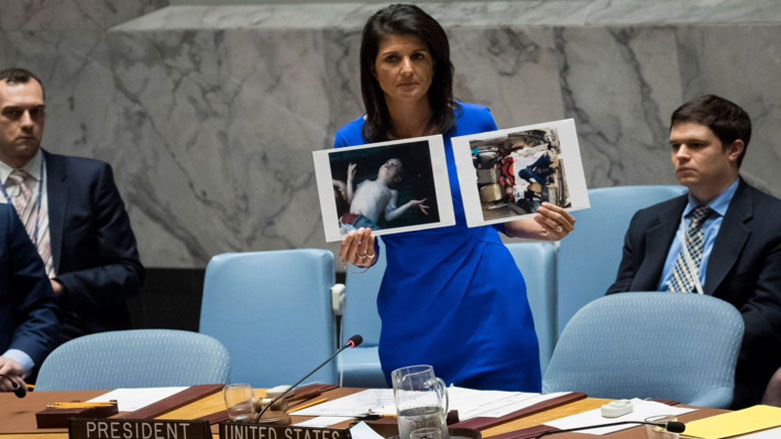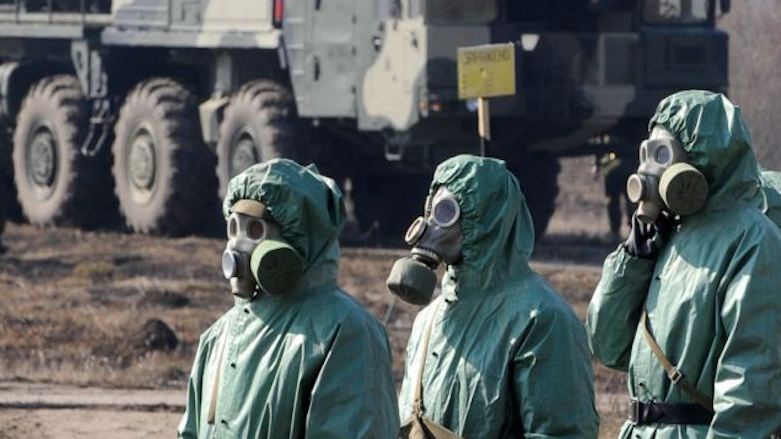Pentagon clarifies warning to Syria against use of chemical weapons

WASHINGTON DC, United States (Kurdistan24) – On Tuesday, the Pentagon provided some background to the statement the White House issued on Monday night, warning Damascus against any use of chemical weapons.
“We have observed activities at Shayrat Air Base that suggest possible intent by the Syrian regime to use chemical weapons again,” Pentagon press spokesman Major Adrian Rankine-Galloway told Kurdistan 24.
“These activities are similar to what we observed prior to the regime chemical weapons attack against Khan Sheikhoun in April,” he added.
Nearly 90 people died in the regime’s sarin nerve gas attack on the rebel-held village on April 4. The US responded two days later by launching 59 cruise missiles against the airfield used by the Syrian aircraft—the same base where the latest activities occurred that suggest an imminent chemical attack.
Kremlin spokesman Demitri Peskov protested the new US warnings, saying, “We consider such threats to the legitimate leadership of the Syrian Arab Republic unacceptable.”
Iran’s Foreign Minister, Mohammed Zarif, spoke similarly, calling Washington’s language “another dangerous US escalation,” which is based on a “fake pretext.”
Secretary of Defense James Mattis made clear that the US does not want to become further involved in Syria’s conflict.
The US is focused on defeating the Islamic State (IS), he explained. “We just refuse to get drawn into a fight there in the Syria civil war,” Mattis told reporters late on Monday.
However, the Trump administration views Syria’s use of chemical weapons as “a clear threat to regional stability and security,” Rankine-Galloway said, and to “the national security interests of the United States” as well.
Mattis also underscored the extent of Iran’s involvement in the multi-faceted Syrian conflict.
Referring to the increasing risk of confrontation in southeastern Syria between local forces which the US backs in the fight against IS and pro-Syrian forces moving into the area, Mattis said, “You have to assume there are either Iranian officered or Lebanese Hezbollah elements with them.”
Nikki Haley, US ambassador to the United Nations, told a Congressional committee that the US would also hold Russia and Iran responsible if Syria used chemical weapons again. However, she did not specify just how Washington would respond, if it did.
Asked to explain the rationale behind Haley’s statement, State Department Spokesperson Heather Nauert noted that Iran, along with Russia has “a lot of influence with the Assad regime.”
“We have consistently” called on Russia to use that influence “to stop this kind of activity.”
The Syrian regime has denied any intent to use chemical weapons, but Nauert responded that the claim was simply not credible.
If the Syrians “say that they’re not making any preparations, I’m not certain that we’re going to buy that,” she said.
Following the US strike on Shayrat air base in April, President Bashar al Assad dismissed the US charge as “100 percent fabrication,” despite the clear symptoms of chemical poisoning displayed by the survivors, as well as confirmation of the US position from other parties, including the British, French and Turkish governments.

